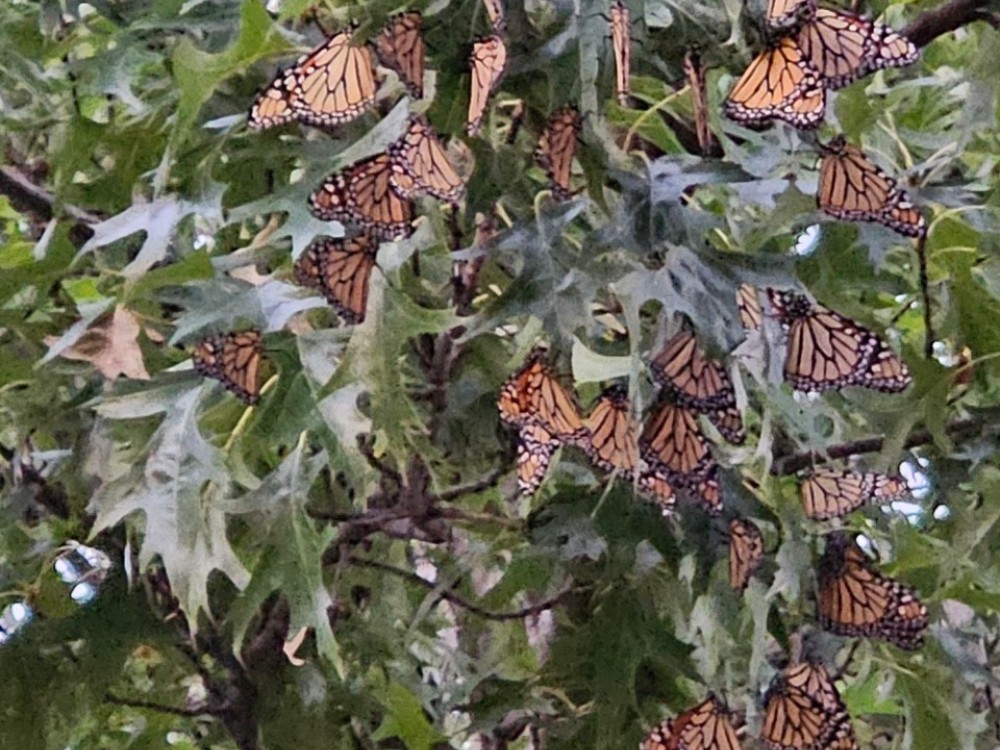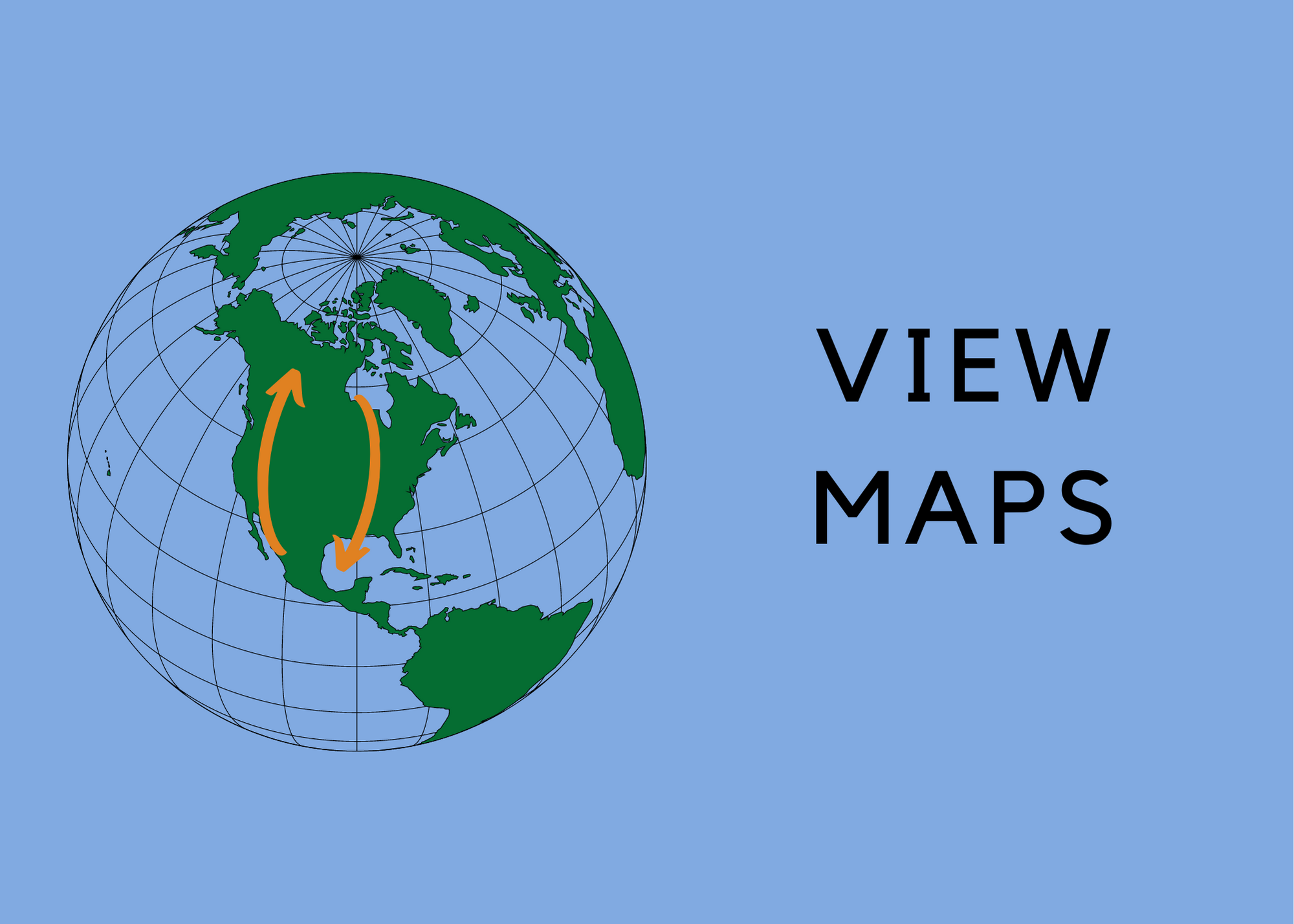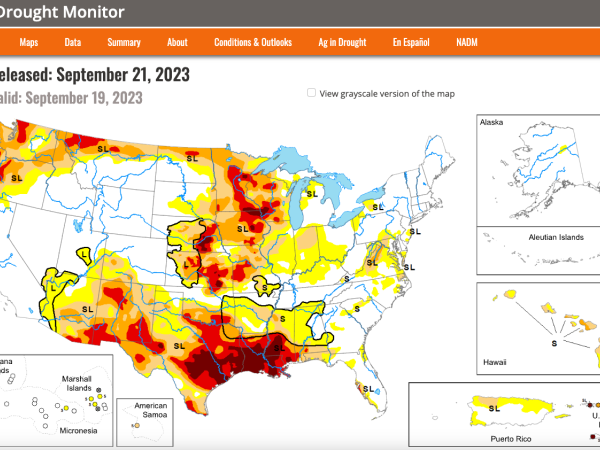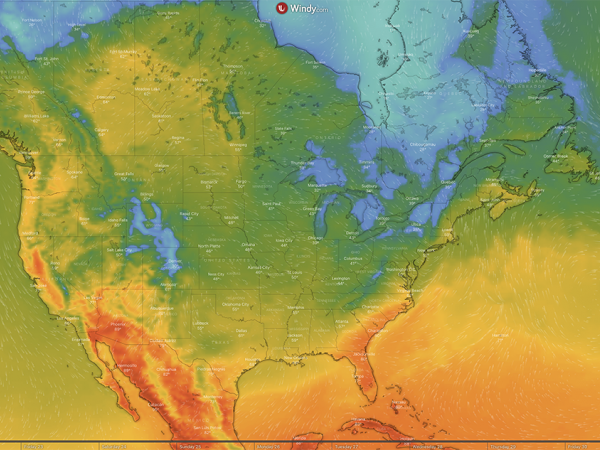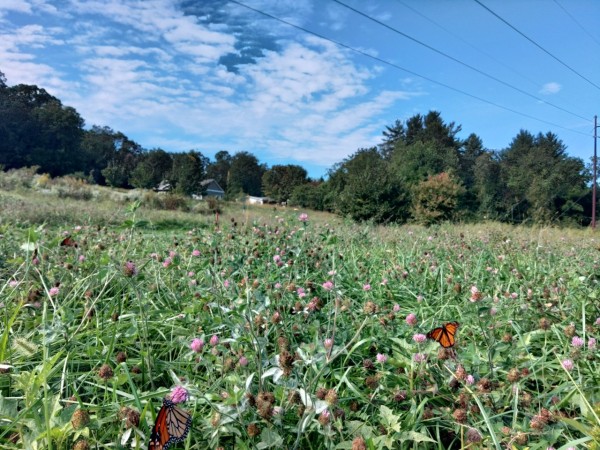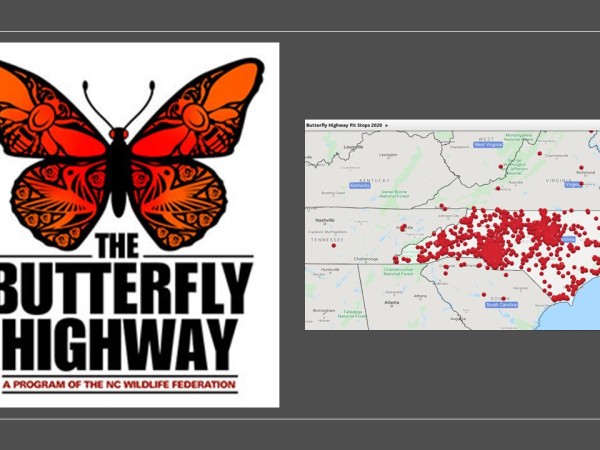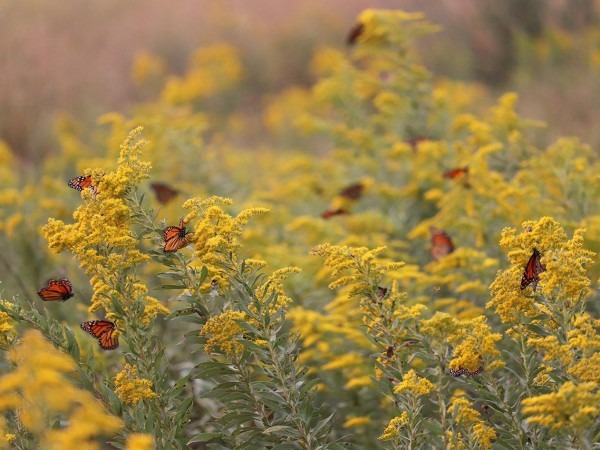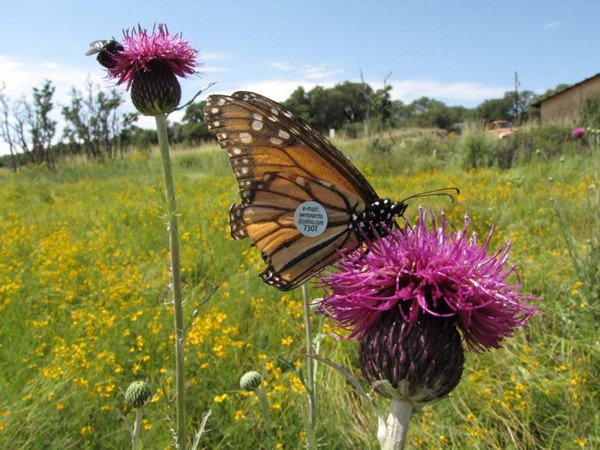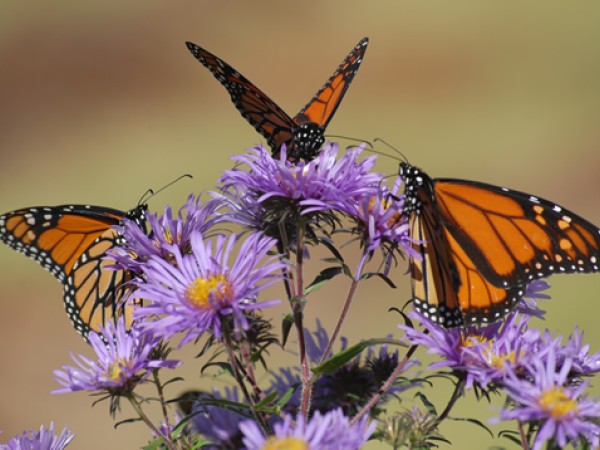Weather, Nectar Rich Plants, and Migration
Drought conditions in certain regions are of concern for the monarchs migrating south. Areas in the southern United States and northeastern Mexico are seeing high temperatures and very little rain. The drought conditions can affect the ability of plants to grow, which may impact monarchs' ability to accumulate energy reserves in the form of lipids (fats) before they reach their overwintering sites in Mexico. During their fall migration, adult monarchs need to feed on nectar rich flowers to stockpile the fat that will sustain them during the winter months. Nectar gathered during the fall migration is a significant part of this energy storage process. Having sufficient nectaring resources along migration routes are key to monarch survival along the way, as well as during the overwintering period.
Eastern Monarch Population
For the Eastern population of monarchs, fall roosts recently were concentrated around latitudes 35-38°N, primarily in Oklahoma and Kansas, as well as along the Great Lakes. Peak migration events during the past two weeks were largely concentrated in the Midwest and along Lakes Ontario and Erie. Where along the Atlantic Seaboard are observers seeing monarch roosts or peak migration events? Please continue reporting to Journey North!
Read more in the Eastern Monarch Fall Report #2>>
Western Monarch Population
There have been no fall roosts or peak migration events reported yet out West, though there have been several reports of adults, larvae, and eggs. Check out the fall roost and peak migration maps from previous years for comparison.
What are you observing west of the Rocky Mountains? Thank you for reporting to Journey North. This information is crucial to better understanding this population.
Journey North & The North Carolina Wildlife Federation
Journey North is partnering with the North Carolina Wildlife Federation to promote monitoring monarch and hummingbird migration along the Butterfly Highway, a statewide conservation restoration initiative that aims to restore native pollinator habitats to areas impacted by urbanization, land use change, and agriculture across the state.
Read more about the Butterfly Highway>>

